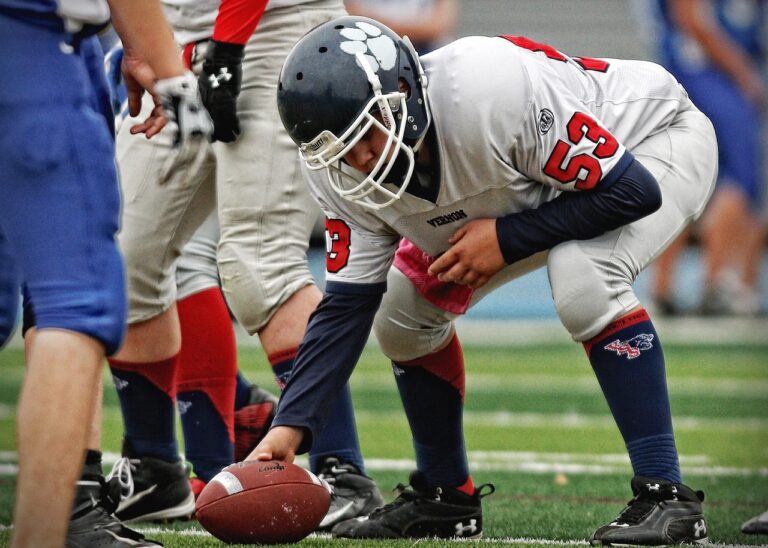The Role of Nutrition in Cricket Player Performance
cricbet99, sky99exch, reddy club book:Cricket is a game that demands high levels of physical fitness, mental acuity, and stamina from its players. As with any sport, nutrition plays a crucial role in ensuring that cricket players are able to perform at their best on the field. A well-balanced diet can help players maintain their energy levels, improve their recovery times, and enhance their overall performance. In this article, we will explore the role of nutrition in cricket player performance and discuss some key strategies for optimizing nutrition to maximize on-field success.
1. Understanding the Importance of Nutrition in Cricket
Nutrition is the foundation of athletic performance, and cricket is no exception. In order to excel on the cricket field, players need to fuel their bodies with the right combination of nutrients to support muscle function, energy production, and recovery. A diet rich in carbohydrates, proteins, fats, vitamins, and minerals is essential for cricket players to perform at their peak.
2. Macronutrients for Cricket Players
Carbohydrates are the primary source of energy for cricket players and should make up a significant portion of their diet. Foods like whole grains, fruits, vegetables, and legumes are all good sources of carbohydrates that can help players maintain their energy levels throughout a match. Proteins are essential for muscle repair and recovery, so players should include lean sources of protein like chicken, fish, eggs, and legumes in their diet. Finally, fats are important for supporting overall health and providing a concentrated source of energy, so players should include healthy fats like avocados, nuts, and seeds in their diet.
3. Hydration and Electrolytes
Proper hydration is crucial for cricket players, especially in hot and humid conditions. Dehydration can lead to a decrease in performance, so players should drink plenty of water before, during, and after matches. Electrolytes like sodium, potassium, and magnesium are also important for maintaining proper fluid balance and muscle function. Players can replenish electrolytes by drinking sports drinks or consuming foods like bananas, coconut water, and nuts.
4. Pre-Match Nutrition
Eating a balanced meal before a match is essential for cricket players to ensure they have enough energy to perform at their best. A meal rich in carbohydrates, moderate in protein, and low in fat is ideal for pre-match fueling. Players should aim to eat their pre-match meal 2-3 hours before the start of the match to allow for proper digestion.
5. In-Match Nutrition
During a match, cricket players need to stay fueled and hydrated to maintain their performance levels. Snacks like energy bars, fruits, nuts, and sports drinks can provide quick energy and electrolytes to keep players going throughout the match. It’s important for players to listen to their bodies and refuel as needed during breaks in play.
6. Post-Match Recovery
After a match, players should focus on replenishing their energy stores, repairing muscle damage, and promoting recovery. A post-match meal or snack should include a combination of carbohydrates and proteins to refuel and repair muscles. Players can also benefit from consuming foods rich in antioxidants, like berries and leafy greens, to reduce inflammation and support recovery.
7. Supplements for Cricket Players
While a well-balanced diet should provide cricket players with all the nutrients they need, some players may benefit from supplements to fill in any gaps in their diet. Common supplements for cricket players include protein powders, electrolyte powders, vitamin D, and omega-3 fatty acids. Players should consult with a sports nutritionist or healthcare provider before starting any supplement regimen.
8. FAQs
Q: Can cricket players follow a vegetarian or vegan diet?
A: Yes, cricket players can follow a vegetarian or vegan diet as long as they ensure they are getting enough protein, iron, and B12 from plant-based sources like legumes, tofu, tempeh, nuts, seeds, and fortified foods.
Q: How many meals should cricket players eat per day?
A: Cricket players should aim to eat 4-6 meals or snacks per day to fuel their energy needs and support recovery. This can include 3 main meals and 2-3 snacks to keep energy levels steady throughout the day.
Q: Is it important for cricket players to track their food intake?
A: Tracking food intake can be helpful for cricket players to ensure they are meeting their nutritional needs and fueling their bodies properly. This can be done through a food journal or using a nutrition tracking app to monitor intake.
In conclusion, nutrition plays a vital role in cricket player performance. By fueling their bodies with the right combination of macronutrients, staying hydrated, and focusing on pre-match, in-match, and post-match nutrition, players can optimize their performance on the cricket field. With proper nutrition and hydration, cricket players can improve their stamina, recovery times, and overall performance. So, next time you step out onto the cricket field, remember the importance of fueling your body for success.







